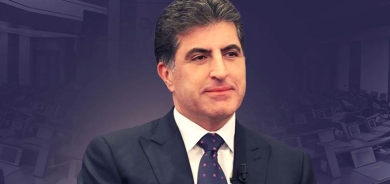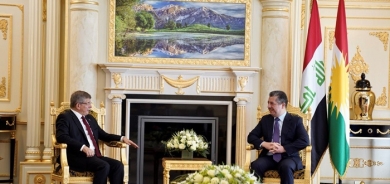Army, rebels agree to ceasefire in Zabadani; U.N. council struggles on Syria resolution

Under the ceasefire, the army would withdraw and insurgents would leave the streets, a senior opposition leader in contact with residents said.
“Tank bombardments have stopped. Preachers are broadcasting the agreement from the minarets of Zabadani,” Kamal al-Labwani told Reuters.
“I think stiff resistance and defections among the attacking forces have forced the regime to negotiate. We will see if it will stick to the deal. The pullout is due to begin tomorrow,” he added.
There was no comment from the Syrian authorities and official media had not mentioned the assault.
Zabadani, a town of 40,000, 30 km (19 miles) northwest of Damascus in the foothills of the mountains which separate Lebanon from Syria, has seen regular big demonstrations demanding the removal of President Bashar al-Assad.
Troops backed by tanks attacked the town on Friday, in the biggest military offensive since Arab monitors went into the country last month.
Labwani said the ceasefire was agreed by town leaders and deputy defense minister Assef Shawkat, Assad’s brother in law.
One person had been killed and 50 injured in Zabadani during the attack said Labwani. About 30 pro-Assad soldiers had also died as had an unknown number of soldiers who had defected to the rebels, he added.
A statement by activists from Zabadani published on Facebook said the ceasefire was agreed after two days of negotiations.
“We are waiting their withdrawal tomorrow morning from our honorable land,” the statement said.
On Tuesday, an Arab League source said that Syria was ready to let Arab monitors extend their mission beyond this week.
Damascus opposes broadening the scope of the Arab League observer mission, the source at the League said, but would accept a one-month extension of its mandate which expires on Thursday.
U.N. officials say more than 5,000 people have been killed in the violence across Syria, where pro-Assad forces are trying to crush peaceful protests and armed rebels.
The government says 2,000 members of its security forces have died.
The Arab League must decide whether to withdraw its 165 monitors or keep them in Syria, even though they are expected to report that Damascus has not fully implemented a peace plan agreed on Nov. 2. Arab foreign ministers are set to discuss the team's future on Jan. 22.
“The outcome of the contacts that have taken place over the past week between the Arab League and Syria have affirmed that Syria will not reject the renewal of the Arab monitoring mission for another month ... if the Arab foreign ministers call for this at the coming meeting,” the Arab League source said, according to Reuters.
The Arab plan required Syria to halt the bloodshed, withdraw troops from cities, free detainees, provide access for the monitors and the media and open talks with opposition forces.
A senior opposition leader said Syrian troops fighting rebels in the town of Zabadani near Lebanon agreed to a ceasefire on Tuesday.
Pro-Assad troops backed by tanks attacked the town on Friday in the biggest military offensive since the Arab monitors entered the country last month.
A rebel army chief said on Tuesday the Arab League monitors should go as they had failed to curb a crackdown on protesters seeking President Assad’s overthrow.
“Though we respect and appreciate our Arab brothers for their efforts, we think they are incapable of improving conditions in Syria or resisting this regime,” Riad al-Asaad, the Turkish-based commander of the rebel Free Syrian Army told Reuters.
“For that reason we call on them to turn the issue over to the U.N. Security Council and we ask that the international community intervene because they are more capable of protecting Syrians at this stage than our Arab brothers,” Asaad said.
The Arab League source said Beijing and Moscow had urged President Assad to accept an extension of the monitoring mission to avert an escalation at the international level.
Syria would agree to an increase in the number of monitors, he said, but would not allow them to be given formal fact-finding duties or be allowed into “military zones” that are not included in the existing Arab peace plan.
Any change in the scope of the mission, whether to militarize it or let it investigate human rights abuses and potentially assign blame, would require a new agreement with Syria, the source said.
Qatar has proposed sending in Arab troops, a bold idea for the often sluggish League and one likely to be resisted by Arab rulers close to Assad and those worried about unrest at home.
Syria’s foreign ministry said on Tuesday it was “astonished” at Qatar’s suggestion, which it “absolutely rejected.”
The League could ask the U.N. Security Council to act, but until now opposition from Russia and China has prevented the world body from even criticizing Syria, an old ally of Moscow.
Few Western powers favor any Libyan-style military action in Syria, which lies in the heart of the conflict-prone Middle East. Bordering Lebanon, Turkey, Jordan, Iraq and Israel, it is allied to Iran and the armed Lebanese Shi'ite Hezbollah group.
Assad, while offering reform, has vowed to crush his opponents with an “iron fist”, but Syrians braving bullets and torture chambers appear equally determined to add him to the list of the past year's toppled Arab leaders.
Army deserters and other rebels have taken up arms against security forces dominated by Assad’s minority Alawite sect, pushing Sunni Muslim-majority Syria closer to civil war.
Meanwhile, U.N. Security Council diplomats held prolonged talks Tuesday on a proposed Russian resolution on Syria without getting closer to U.N. action on the bloodshed, diplomats said.
Experts from the 15 nations met for more than four hours to discuss Russia’s latest proposition with criticism mounting of the council’s failure to pass a resolution on President Assad’s deadly crackdown on protests, diplomats said.
Western nations reject Russia's demand that blame for the violence be attributed equally to the Syrian government and opposition. The United States, France and Germany said before the talks that the current Russian text was unacceptable.
“There were more than four hours of talks but they only touched on the preparatory paragraphs,” said one western diplomat from a nation involved in the talks, according to AFP.
“We don’t feel a real effort to close the gaps,” commented another western diplomat. Both diplomats spoke on condition of anonymity as the Security Council talks are meant to be confidential.
Russia proposed its own text in December but the council has failed to make progress since. Western diplomats have repeatedly accused Russia of seeking to buy time for its Syrian ally.
The new text takes makes slight changes to the Russian resolution while adding a list of amendments proposed by European nations and the United States. Russia has not said whether it is ready to negotiate changes to its position and Russian diplomats did not immediately comment after the latest talks.
U.N. chief Ban Ki-moon on Monday urged the Security Council to act decisively on Syria saying that the violence had become “unacceptable.”
(Reuters)













